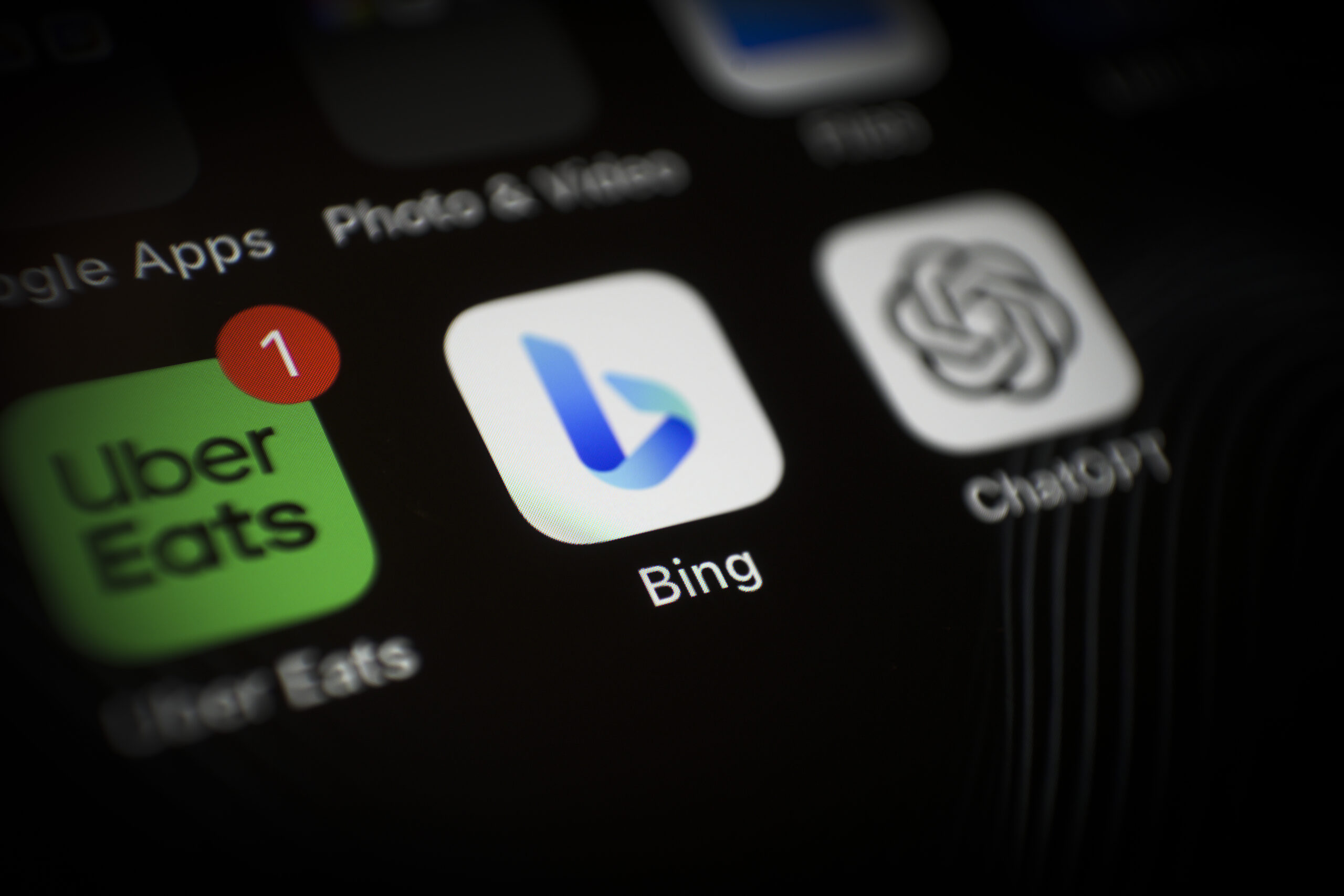Microsoft has been touting Bing AI since the beginning of the year as an innovative way to improve your searches with artificial intelligence. In February 2023, Microsoft launched Bing AI Chat in a preview version. In May, the company rolled out a version for everyone. But the drive to use the new AI has yet to translate to an increase in Bing’s market share, at least according to the latest market statistics.
Statcounter stats show Bing’s global market share is 2.99% in July 2023, down slightly from 3.03% in January and up slightly from 2.76% in April . Figures from Similarweb show that Bing’s share was 3.23% in June, a relatively stable figure since the start of the year.
Web traffic metrics from analytics firm YipitData show a fluctuation in Bing’s visitor numbers, which fell from 95.7 million in February to 101.7 million in March, to 96.4 million in April, to 99.2 million in May and 97.7 million in June. Note that these statistics include PCs, but not mobile devices, and exclude China.
battle of numbers
Faced with statistics from Statcounter, Similarweb and YipitData, Microsoft qualifies the new Bing as a success, according to the Wall Street Journal. The company even disputes data from analytics companies, saying their numbers don’t account for everyone who goes directly to the Bing Chat page.
Statcounter, Similarweb and YipitData said their data takes into account traffic to and from Bing Chat. David F. Carr, senior insights manager at Similarweb, said the stats may be missing some interactions, but none that are meaningful.
“Microsoft says its internal numbers show more growth than we reflect,” Carr told ZDNET. “We may be missing some Bing Chat interactions that use a sidebar or Edge extension, but I don’t know if that’s significant.
A Microsoft spokesperson provided ZDNET with the following statement:
“While we can’t comment on third-party data, we can say that Bing has surpassed 100 million daily active users. Our usage signals show strong growth since February and, thanks to new hotspots As Bing Chat Enterprise, we’ve had one of the strongest months of growth ever since the launch of our new Bing and Edge experience. Our customers have already participated in over a billion chats and created over 750 millions of images with Bing Image Creator”.
Battle between Microsoft and Google
Since its launch in July 2009, Bing has had to fight an uphill battle against Google in the search engine market. Google’s overall share of this lucrative market has remained relatively stable over the past few years, at around 90%. For Google, Microsoft, Yahoo and a few other companies, search is a key driver of revenue, primarily from advertisers who pay to place ads on search results pages. In 2022, Google earned $162 billion from search ads, while Microsoft’s Bing generated about $11 billion.
To capitalize on the generative AI craze, Microsoft has added its chatbot to Edge and the Bing mobile app. Either way, you can ask questions, search for information, and generate content by chatting with the AI bot. In recent weeks, the company has extended Bing’s AI to other non-Edge browsers such as Chrome and Safari to attract more users.
Besides generating text, Bing can also design an image from your description. With the new visual search feature, you can add a photo or image to your query and ask Bing to interpret it or answer questions about it. There’s even an enterprise version of Bing AI for larger organizations that want to offer and manage chatbot usage for their employees.
To avoid losing ground, Google has for its part tested the integration of AI into its search engine. Available as a Google Labs experiment, Search Generative Experience, or SGE, attempts to enhance typical search results with an AI-generated summary.
AI in Internet research, but for what?
But the big question is whether or not AI can attract more users to traditional search engines, and which search engines will fare better then.
“The challenge is to figure out which tool we will primarily use for this purpose,” says Max Gomez, chief marketing officer of The HOTH.
“From my perspective, users will likely turn to Google when they have a clear idea of their search intent,” Gomez added. “The introduction of SGE on the search engine results page confirms this hypothesis, suggesting that Google is pushing for more comprehensive search queries, beyond traditional queries. On the other hand, I foresee a trend where users will increasingly turn to AI for specific answers, especially when exploring unfamiliar topics or specialized tasks like coding and programming.”
To go further on AI in search engines
Source: “ZDNet.com”
